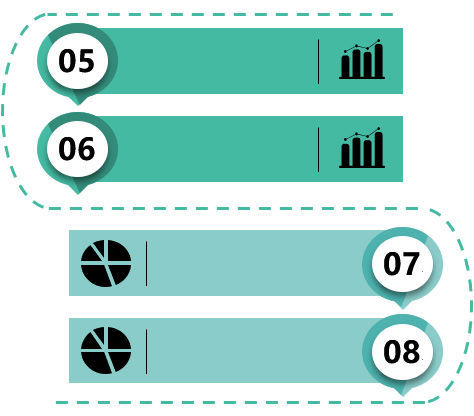Enzymatic Modification
Inquiry
Functions of Enzymatic Modification
Natural starch receives limitations in industrial applications due to its characteristics and is modified by starch to obtain desirable physicochemical and functional properties. Amylase belongs to the general term of a certain class of enzymes and catalyzes the hydrolysis of intramolecular glycosidic bonds in starch. The advantages of enzymatic modifications compared to other forms of modifications are varied. The specificity and selectivity of the enzyme treatment minimize the formation of undesirable products such as by-products, by-products, and side reactions. During the enzymatic digestion, the reaction is mild, so that the substrate is easily converted into a net product. Used enzymes are recycled and reused. Enzymes are used to modify natural starch and create products with altered solubility, viscosity, or gelation properties that have a wide application in food, paper, textile, and other industries.
Enzymatic Modification Services
At CD BioGlyco, enzyme modification involves the design of starch with new structures, in which molecular weight, branched length distribution, and amylose/amylose ratio are changed by enzymatic reaction. Amylase is divided into internal and external amylase according to the reaction mode of hydrolyzed starch, namely the substrate binding mode of the active site. Endo-amylase is independent of the reducing end of the polysaccharide chain and requires binding to the end of the polysaccharide chain followed by a hydrolysis reaction.
 Fig.1 Different enzymes involved in the degradation of starch. (Marc, et al.,2002)
Fig.1 Different enzymes involved in the degradation of starch. (Marc, et al.,2002)
In addition, we offer a variety of enzymatic modification services to our customers worldwide, including but not limited to: Endoamylse Treatment, Exoamylase Treatment, Debranching Enzyme Treatment, and Transferase Treatment.
Fig.2 Amylase modification service. (CD BioGlyco)
Applications
- In animal feed, starch improves the digestion and absorption of feed, improves the production performance, and improves the utilization rate of feed.
- In the food industry, modified starch increases the volume of the bread and increases the fermentation speed of the dough.
- Modified starch products fructose syrup
- In the textile industry, modified starch reduces the difficulty of dressing.
Advantages
- The enzymatic starch modification involves a variety of different enzymes that explore different biological functions
- Enzymatic starch modification reaction has high reaction efficiency, no impurities, and no pollution.
- Quality control of product by multiple certifications
CD BioGlyco is a leader in the modification of carbohydrate production, we have several methods available for enzyme modification. Professional technicians will customize the modification technology according to the customer's needs. If you are interested in our services, please feel free to contact us for more details.
References
- Dura, A.; et al. Enzymatic modification of corn starch influences human fecal fermentation profiles. J Agric Food Chem. 2017, 65(23): 4651-4657.
- Marc, J.E.C.; et al. Properties and applications of starch-converting enzymes of the α-amylase family. Journal of Biotechnology. 2002, 94(2): 137-155.
For research use only. Not
intended for any clinical use.
Quick Links
Related Services


 Fig.1 Different enzymes involved in the degradation of starch. (Marc, et al.,2002)
Fig.1 Different enzymes involved in the degradation of starch. (Marc, et al.,2002) 




